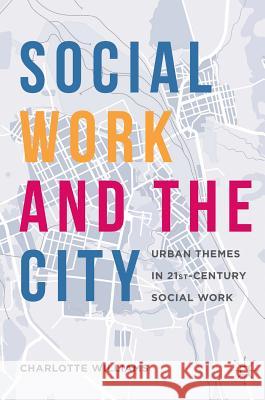Social Work and the City: Urban Themes in 21st-Century Social Work » książka
Social Work and the City: Urban Themes in 21st-Century Social Work
ISBN-13: 9781137516220 / Angielski / Twarda / 2016 / 299 str.
This book critically explores ways of thinking about the city and its relevance for the profession of social work. It provides a colourful illustration of practice drawing on examples of social work responses to a range of issues emerging from the unprecedented scale, density and pace of change in cities. The associated challenges posed for social work include: the increased segregation of the poor, the crisis of affordable housing, homelessness, gentrification, ageing, displacement as a result of migrations, and the breakdown of social support and care.
Drawing on multiple disciplines, this groundbreaking work shows that these familiar features of the twenty-first century can be counteracted by the positive aspects of the city: its innovation, creativity and serendipity. It has a redistributive, caring and cohesive potential. The city can provide new opportunities and resources for social work to influence, to collaborate, to foster participation and involvement, and to extend its social justice mandate. The book shows that the city represents a critical arena in terms of the future of social work intervention and social work identity. In doing so, it will be of great interest to students and scholars of social work, social policy, community work and urban studies.











